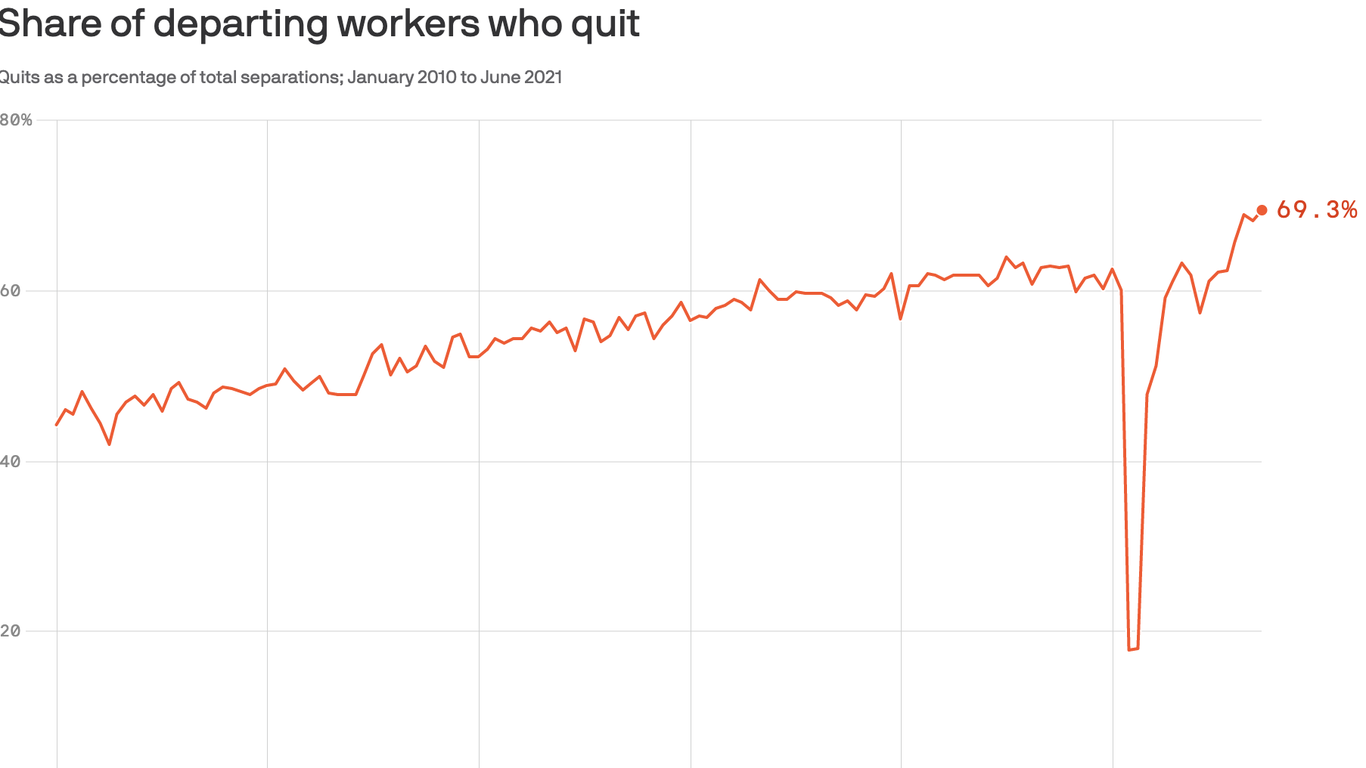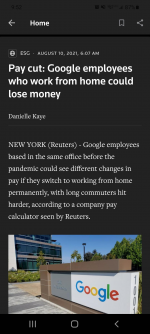
Workers quit at historic clip
3.87 million workers quit their jobs in June, which is close to the record, set in April, of 3.99 million.
A mass exodus is happening. People are leaving their current jobs for new jobs with better pay and benefits.
I have even seen it where I work. Half my team has left this summer. One of the biggest reasons is compensation. Underpaid for what they do.
Despite a bunch of job openings becoming available, there are no roles I can move into to get better compensation. They are choosing to back fill all vacancies with junior developers / lower salaries. So any open position would be a paycut.
Compensation is an issue for me and if I find a job with better compensation I would jump in a heartbeat. It's a necessity for me as I can't get by on my currently salary alone. I must find freelance work just to make end meat. There haven't been any cost of living adjustments since early 2018 at my company. For the last 4 years they have had an outside company looking at pay bands after a company survey showed employees were displeased by compensation. In June, when they completed the study for my title, I learned that I was paid below the pay band. And they had to adjust my salary by 2k to bring me to the lowest level of the payband. The pay band has 15k in it's range. But with cost of living adjustments not a thing at my company currently and promotions the only way to get a pay bump, there is no way for me to see a pay increase without being promoted to a senior developer. Which would be more than a 15k pay bump. and as of right now, we only have 2 senior developers. All the rest of them were laid off when covid hit because they make to much money. And even they were paid below industry standard but all we hear from our clients is "we are to expensive" and we keep losing work to overseas contractors.
